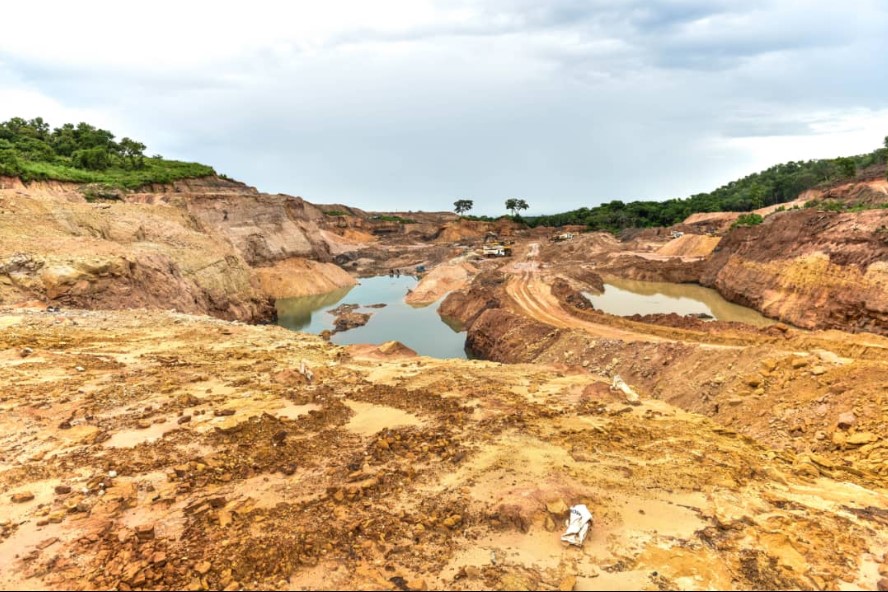The Nigeria Extractive Industries Transparency Initiative (NEITI) and Global Rights, an advocacy organisation, have urged the government to enhance legal protections and skills training for Nigeria’s mining host communities.
At a two-day workshop held in Karu, Nasarawa State, Abiodun Baiyewu, the Executive Director of Global Rights, highlighted the severe environmental and socio-economic challenges that mining communities face due to inadequate legal safeguards. Baiyewu expressed concern over the environmental degradation, health risks, and economic hardship endured by these communities.
“Mining operations frequently lead to land degradation, pollution, and threats to cultural heritage, yet many communities lack the necessary tools to defend their rights,” Baiyewu remarked.
Empowering these communities, she argued, would enable them to advocate for better governance and mitigate the adverse effects of mining, fostering a path toward sustainable development.
The workshop, held in partnership with NEITI and the House of Representatives Committee on Solid Minerals, aimed to equip participants from the Karu/Keffi/Kokona Federal Constituency with skills to protect their land, cultural heritage, and livelihoods from mining’s harmful impacts.

Baiyewu called for collaborative efforts between government bodies and mining companies to empower host communities. She argued that with robust legal protections, these communities would be in a stronger position to advocate for policies that balance environmental sustainability with responsible mining practices. She also emphasised the need to preserve traditional knowledge in environmental stewardship, warning that mining should not come at the cost of community health and well-being.
According to Baiyewu, economic resilience in mining communities is equally important. By providing alternative livelihood training and improving revenue management, communities could reduce their reliance on mining, creating a foundation for self-reliance and stability.
The Chairman of the House Committee on Solid Minerals, Gaza Gbefwi, supported these calls for community-centred mining practices. He stressed that sustainable mining must prioritise local communities’ welfare while contributing to national economic growth.
“Nasarawa State is rich in mineral resources, but we need responsible mining practices for sustainable development,” Gbefwi said. “It’s critical that all stakeholders—government, mining companies, and host communities—work together to ensure transparency and environmental protection.”
The training covered essential tools for community engagement, such as Free, Prior, and Informed Consent (FPIC), Environmental Impact Assessments (EIA), and Community Development Agreements (CDA). Gbefwi stressed that these tools are vital for enabling communities to participate meaningfully in decisions impacting their land and livelihoods.
“Our traditional leaders are key to fostering collaboration and addressing community needs,” Gbefwi added. “By engaging in discussions with mining companies and government officials, they can push for practices that benefit both the state and the communities.”
Orji Orji, the Executive Secretary of NEITI, acknowledged that the mining sector contributed N1.66 trillion to Nigeria’s GDP in 2022. However, he cautioned that improper regulation poses serious environmental threats. “Mining presents significant economic opportunities, but if not managed correctly, it can lead to lasting environmental harm,” Orji warned. He highlighted the gap between policy and practice in regulating mining’s environmental impacts.
Orji advocated for platforms that foster dialogue and action. “By equipping communities with the right tools, we can shape a future where economic growth aligns with environmental protection,” he said.
Illegal mining, a major challenge in areas like Kaduna, Kebbi, and Nasarawa, continues to undermine regulated mining efforts, with as much as 80 percent of mining activities in these states operating outside legal frameworks. This unregulated mining leads to serious environmental damage, such as water pollution and deforestation, and fuels illegal trade and trafficking.
Traditional leaders from Karu, Yankpa, Agbada, and Keffi expressed hope that the training would strengthen their ability to negotiate with both mining operators and government authorities. They emphasised the importance of involving local communities in every stage of the mining process—from planning to monitoring—to promote sustainable practices.
As the workshop concluded, Global Rights and NEITI stressed the critical need for transparent governance in Nigeria’s mining sector. Without genuine community involvement and regulatory reforms, they warned, the mining industry could face further ethical and environmental crises that threaten its potential for sustainable growth.

